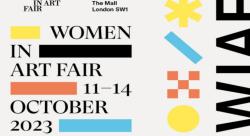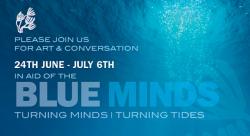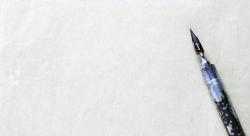by Roderick Conway Morris
In 1930 Anni Albers was the first student at the Bauhaus – that German powerhouse of modern art, architecture and design – to be awarded a diploma in weaving. She entered the school in 1922 interested in glass, but the only position in that workshop was occupied by one Josef Albers. She married him in 1925, having reluctantly entered weaving, one of the few disciplines open to women (despite the school’s supposed egalitarian principles). ‘My beginning was far from what I had hoped for: Fate put into my hands' limp threads!’ she later recalled. ‘Threads to build a future? But distrust turned into belief and I was on my way.’
Weaving long remained something of a Cinderella subject in modern art and Anni was perhaps the last of the Bauhaus members to receive her proper due as one of the most influential figures in 20th-century art and design. That she is now well and truly on the map is reflected in the exhibition of her works at Tate Modern, the largest ever staged in this country. Extensively explored are both her designs made for everyday and architectural use, and her ‘pictorial weavings’, which she described as ‘not to be sat on, walked on, only to be looked at’. Some have a complexity and resonance comparable to that of the finest abstract paintings.
One of the first exhibits is her diploma design of a sound-proof, light-reflecting fabric for an auditorium, which proved a life-saver for the Jewish-born Anni when the Bauhaus was closed by the Nazis in 1933. When the American architect Philip Johnson was helping Bauhaus members flee to the US, this inventive fabric proved, in his words, ‘her passport to America’. Her fellow Bauhaus weaver Otti Berger failed to get a visa and perished in Auschwitz.
The young Anni became fascinated by Pre-Columbian art and artefacts while growing up in Berlin, and she and Josef made 15 trips to Central and South America between 1935 and 1967. This had an enormous influence on her designs and her writing of on weaving (1965), a celebrated account of the subject. But she disliked personal attention, relishing unexpectedly cancelled public appearances – a pleasure, she said, comparable only to returning something unwanted to a department store.
Until 27 January 2019 at Tate Modern, London SE1: 020-7887 8888, www.tate.org.uk








